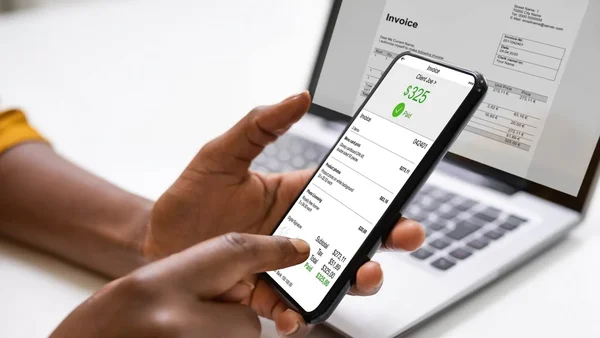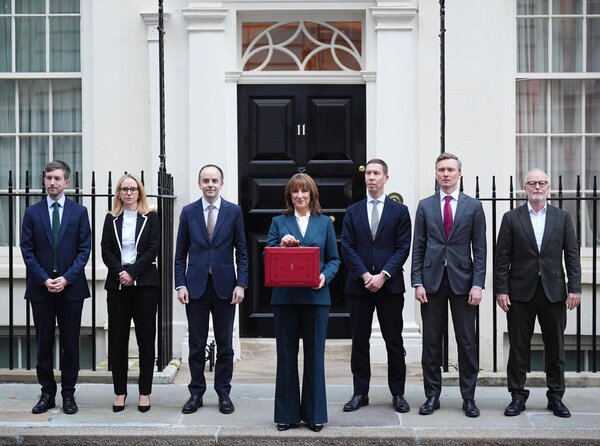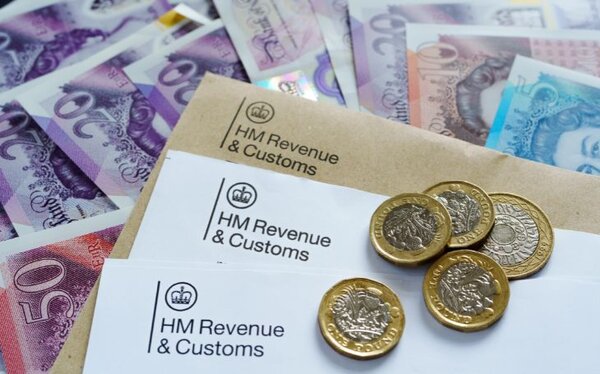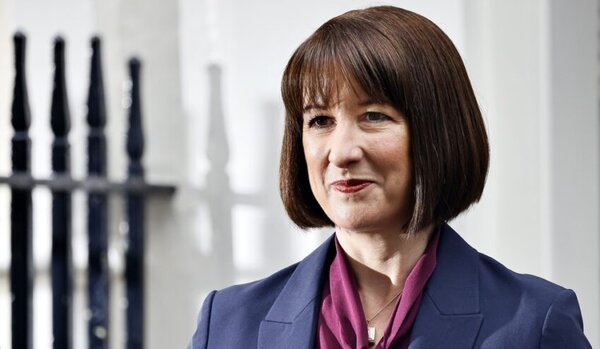All the Details, Explained...
Everything you need to know in one place
Discover exactly how much corporation tax for a limited company you'll need to pay in 2025, plus tax reliefs that could save your business money.
What is corporation tax and why does it matter?
Running a limited company means you’ll need to pay corporation tax on your profits. Allowable business expenses can reduce the amount of corporation tax a company needs to pay.
It’s one of those unavoidable business expenses that directly impacts how much money you can take home.
Unlike income tax, corporation tax is paid by the company itself, not by you personally. This is one of the key differences between operating as a limited company versus being a sole trader.
Many business owners find corporation tax confusing, especially with the recent changes to rates. Let’s clear things up so you know exactly what to expect.
How much are the corporation tax rates for a limited company in 2025?
The current corporation tax system in the UK uses different rates based on how much profit your company makes. This tiered approach replaced the old flat rate system in April 2023.
If your company makes profits under £50,000, you’ll pay the small profits rate of 19%. This lower rate helps smaller businesses keep more of their earnings.
For companies with profits over £250,000, the main rate of 25% applies. This higher percentage applies to your entire taxable profit.
If your profits fall between £50,000 and £250,000, you’ll benefit from something called marginal relief, which creates a gradual increase between the 19% and 25% rates. It’s worth noting that these thresholds are reduced if you have a short accounting period or if you’re part of a group of companies.
Augmented profits, which include taxable profits plus exempt dividends, impact the tax rate applicable when profits exceed specified thresholds.

When is the corporation tax deadline for paying my bill?
Your corporation tax payment is due 9 months and 1 day after your accounting period ends. This timing is specific to your company, so there’s no universal deadline like with personal tax.
For smaller companies, the corporation tax deadline is the same, but larger corporations may need to make additional payments in instalments. It’s advisable to consult the HMRC website for detailed timelines based on your taxable profits.
You’ll need to file your Company Tax Return within 12 months of your accounting period end, but remember that payment is due earlier than the filing deadline.
If you’ve just started a new company, you must register for corporation tax within 3 months of beginning to trade. Missing this deadline can result in penalties.
Most companies pay their corporation tax bill through online banking or direct debit. Your accounting software might also offer payment options to make the process easier.
Late payments attract interest charges from HMRC, so it’s best to mark the due date clearly in your calendar to avoid unnecessary costs.
How do I work out my corporation tax bill?
Calculating your corporation tax starts with your company’s profits before tax from your financial statements. To calculate corporation tax, you begin with this figure and then make necessary adjustments.
The company's profits are calculated by deducting allowable business expenses and other adjustments.
You’ll need to adjust this figure by adding back non-deductible expenses. These might include client entertainment costs and certain legal fees that HMRC doesn’t allow as deductions.
Next, factor in your capital allowances for business equipment and assets. These can significantly reduce your taxable profit if you’ve invested in new equipment during the year.
If your company has carried forward losses from previous years, you can use these to offset current profits and reduce your tax bill.
For the most accurate calculation, consider using HMRC’s online tools or working with an accountant.

What tax reliefs can help reduce my corporation tax?
Research and Development (R&D) tax credits can offer substantial savings if your company works on innovative projects. These credits are more widely available than many business owners realise.
Associated companies can influence the tax rates applicable to a corporation, making it crucial to identify them correctly under corporation tax regulations.
Capital allowances let you deduct the full value of qualifying equipment purchases from your profits before tax. The Annual Investment Allowance currently stands at £1 million.
The Patent Box scheme allows a reduced tax rate of 10% on profits from patented inventions. This can be a game-changer for companies with intellectual property.
Creative industry tax reliefs offer specific benefits for businesses in sectors like film, animation, and video games. These can transform your tax position if you qualify.
Trading losses can be carried forward indefinitely against future profits of the same trade, giving you tax relief in later years when you return to profitability.
How do director payments affect corporation tax?
Salary payments to directors (including yourself) reduce your company’s taxable profits because they’re tax-deductible expenses. This directly lowers your corporation tax bill.
It is also important to understand the implications of an associated company on quarterly installment payments and corporation tax rates. Identifying which companies are classified as associated can significantly affect your tax liabilities.
Dividends, on the other hand, are paid from post-tax profits. This means they don’t reduce your corporation tax liability, though they can be tax-efficient for you personally.
Finding the right balance between salary and dividends is key to minimising your overall tax burden across both corporation tax and personal tax. Company pension contributions are also tax-deductible and can be an excellent way to extract value from your business.
The timing of these payments matters too. Making sure expenses fall within the right accounting period can help manage your tax position effectively.

How can I plan ahead for corporation tax?
Stay on top of Budget announcements that might affect corporation tax rates or reliefs. Tax rules change regularly, and being prepared helps avoid surprises.
Consider the timing of major purchases. Buying equipment just before your accounting year-end can bring forward tax relief by a full year.
Accounting periods play a crucial role in tax planning. For instance, if your accounting period straddles significant legislative changes, such as those on April 1, 2023, you may need to split it into two notional periods to apply the correct tax rates.
Keep detailed, up-to-date financial records throughout the year. This makes tax calculations easier and helps you spot opportunities for tax planning.
Set aside money for tax as you go along. I learned this lesson the hard way in my first year of business when I hadn’t budgeted properly for my tax bill and had to scramble to find the funds.
Regular reviews with your accountant can help identify tax-saving opportunities and ensure you’re claiming all available reliefs and allowances.
What happens if I can't pay my corporation tax?
If you’re struggling to pay your corporation tax, contact HMRC as soon as possible. They may agree to a Time to Pay arrangement that spreads your liability over several months.
For companies involved in oil and gas production, specific tax regulations apply, including the Ring Fence Corporation Tax, which is relevant to activities on the UK Continental Shelf.
Ignoring tax problems only makes them worse. HMRC adds interest to late payments and can impose penalties for non-payment.
Consider whether you can raise funds to pay your tax bill through business loans or by releasing cash tied up in assets or unpaid invoices. Review your business model if tax payments are consistently challenging.
Accounting Period and Company Tax Return
The accounting period is the timeframe for which your company prepares its financial statements and pays corporation tax.
Typically, this period aligns with your company’s financial year, ensuring consistency in reporting. At the end of each accounting period, your company must submit a Company
Tax Return, also known as the CT600 form, to HMRC. This crucial document details your company’s profits, losses, and tax liabilities, providing a comprehensive overview of your financial performance.
Filing your company tax return accurately and on time is essential. It not only ensures compliance with tax regulations but also helps avoid penalties.
Remember, the return must be submitted within 12 months of the end of your accounting period, even though your corporation tax payment is due earlier.
Staying organised and keeping detailed financial records throughout the year can make this process smoother and more efficient.
Corporation Tax Payment Plans
If your company is unable to pay its corporation tax bill in full, a corporation tax payment plan can be a viable solution.
This arrangement with HMRC allows you to pay your corporation tax in instalments, easing the financial burden and helping you manage cash flow more effectively.
To set up a payment plan, you’ll need to contact HMRC and provide detailed financial information about your company. This includes your current financial situation and your ability to make regular payments.
Setting up a payment plan can help you avoid penalties and interest charges associated with late payments.
It’s crucial to communicate with HMRC as soon as you realise you might have trouble paying your tax bill, as proactive engagement can lead to more favorable terms and a smoother resolution.

Final thoughts on managing your corporation tax
Understanding the Corporation Tax rate for limited companies is essential for effective business planning. Since rates can vary depending on the level of profits, it’s important to know where your company stands and how to apply the correct rate.
Accurate profit calculations, awareness of available reliefs, and timely filing are key to managing your Corporation Tax obligations efficiently.
Staying informed about current rates and thresholds helps avoid surprises and ensures compliance.
Taking a proactive approach to tax planning can support better financial decision-making and long-term stability for your business.











